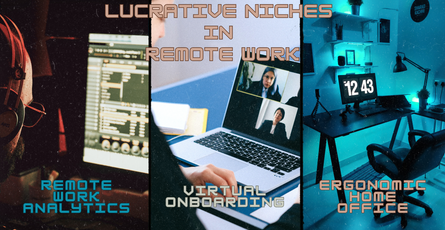Coffee Badging: A Silent Protest? 6 Strategies to Evade the Trend
-
 Shal V
Shal V
- Dec 29, 2023
-
 Tech Culture
Tech Culture
- 02 Mins read

Embracing Flexibility Amidst Return-to-Office Mandates
As organizations usher in a new era post-pandemic, the return to traditional office spaces is met with resistance. The comfort and flexibility of remote work have become cherished aspects of the modern work experience. However, as employees are called back to the office, a phenomenon known as "coffee badging" has emerged, symbolizing a subtle form of resistance.
Symbolic Resistance
The discontent among employees stems from the perceived loss of flexibility and the reintroduction of commuting to the workplace. For many, the prospect of leaving the comfort of home and adhering to rigid office hours becomes a significant source of dissatisfaction. Coffee badging becomes an emblematic act, reflecting a desire for autonomy and a silent protest against the shift from remote to in-office work.
Impact on Team Dynamics: Balancing Presence and Participation
While coffee badging may offer a sense of physical presence, it raises concerns about team dynamics. The practice may convey the impression of mere attendance without active engagement in the team's journey. This can lead to a dip in team morale as some members might feel that their colleagues are present but not fully invested in the collaborative process.
Strategies for Maintaining Team Cohesiveness
To mitigate the potential impact on team dynamics, organizations must strike a balance between flexible work arrangements and team cohesiveness. Recognizing the challenge posed by coffee badging, organizations should take proactive measures to redefine the meaning of attendance.
Encourage Regular Interactions
Foster team cohesion through regular team meetings, both virtual and in-person, to facilitate open communication and maintain a sense of connection.
Collaborative Projects
Promote collaborative projects that require team members' active involvement, encouraging shared goals and collective problem-solving.
Knowledge-Sharing Sessions
Organize knowledge-sharing sessions where employees can showcase their expertise, fostering a culture of continuous learning and collaboration.
Redefine Attendance
Shift the focus from physical presence to meaningful engagement by redefining the concept of attendance in the workplace.
Mark In-Time and Out-Time
Implement a system of marking both in-time and out-time for attendance, ensuring employees actively contribute to the entire duration of their workday.
Penalties for Short Attendance
Consider introducing penalties for instances of short attendance, reinforcing the expectation of active participation in organizational activities.
Conclusion: Redefining Engagement in the Modern Workplace
In the evolving landscape of the post-pandemic workplace, the concept of coffee badging serves as a mirror reflecting the delicate balance between the desire for flexibility and the need for active engagement. Organizations must navigate this challenge by redefining attendance, encouraging meaningful participation, and fostering a work environment that values both autonomy and collaboration.
As we continue to adapt to the changing dynamics of work, addressing coffee badging becomes a crucial step in creating a workplace culture that strikes the right balance, ensuring employees feel both physically and mentally present in their professional journey.


